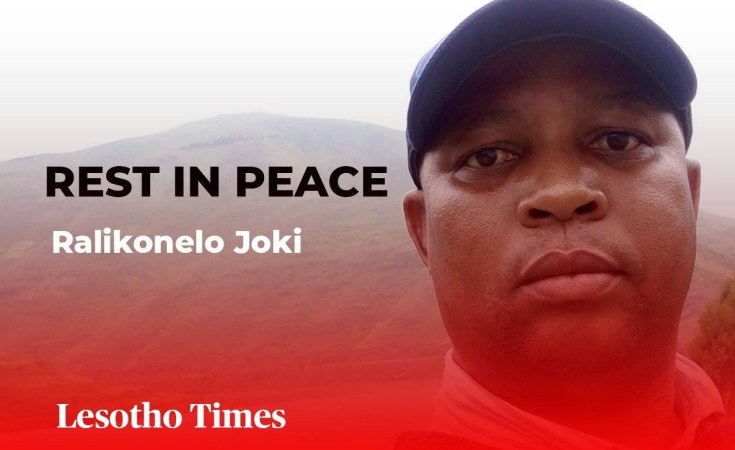Maseru — POPULAR radio presenter Ralikonelo Joki has been shot and killed, in a development that has sent shockwaves across the media fraternity in Lesotho.
Details of Joki's killing are still sketchy. There is unanimity though the killing is a hit linked to his work.
The police are yet to publicly comment on the incident. Tsénolo FM station manager Mshengu Shabalala, said Joki was murdered on Sunday night shortly after knocking off from his Hlokoana La Tsela (I heard it from the grapevine) current affairs programme which runs from 6 to 9 pm daily.
He was driving out of Tsénolo FM's premises shortly after he had finished presenting the programme when he was shot and killed.
Mr Shabala said because the radio station is close to the main road, Joki was compelled to briefly wait for other cars to pass before joining the road. It was during that brief wait that the assassins ambushed and killed him, with one shooting him from the passenger's side while the other shot from the driver's side.
"...He lost control of the car as he tried to drive off which then skidded to the opposite of Tsénolo FM premises, where it hit the wall of Thamae Shopping Centre. Even then, the assassins continued to shoot at him to ensure that he was dead. He was declared dead by members of the Lesotho Defence Force (LDF) who were swift to respond to a call to the scene," Mr Shabalala said on Tsénolo FM earlier today.
Joki, who was affectionately called Qhashi or Leqhashasha (a devil may care), has been described by media colleague 'Marafaele Mohloboli, who used to exchange notes with him on different investigative stories, as a person who had a passion for investigative stories and unearthing the rot in the public service.
"I knew him as a colleague. He joined PC FM after leaving MoAfrika FM. That was shortly after I left PC FM in 2007 to permanently work in print while his craft was radio. However, we worked together throughout the years, exchanging story ideas and sharing notes and tips," Mrs Mohloboli said.
"Like I've said, his passion was unearthing the rot that some people would not want to be exposed. He was considered a loose cannon because neither threats nor intimidation could deter him from pursuing a story. And in the process, he made enemies and was labelled as unprofessional by his detractors.
"Qhashi was very pushy when he was pursuing a story. Moreover, he refused to be censored, to a point where he would be compelled to part ways with the radio stations he worked for, to avoid censorship."
Mrs Mohloboli expressed concern at what she described as "the non- existent security arrangements for media practitioners in Lesotho, saying "it starts with media houses who don't have safety measures in place to protect journos".
She said it was wrong to kill journalists for simply doing their work.
"Society needs to be taught to appreciate the role of the media, otherwise people will never feel like they have an obligation to protect media practitioners. This whole thing doesn't make sense. It has not yet sunk in that Leqhashasha is no more," Mrs Mohloboli said.
She also condemned media owners whom she claimed went into deals with powerful people who then set the agenda for those media organisations. That puts journalists working in those organisations in real danger if journalists tried to expose those who would have been empowered to set the agenda.
Radio stations in Lesotho are notoriously linked to the different political parties in the country.
The deceased leaves behind his son and daughter and a heavily pregnant wife.


